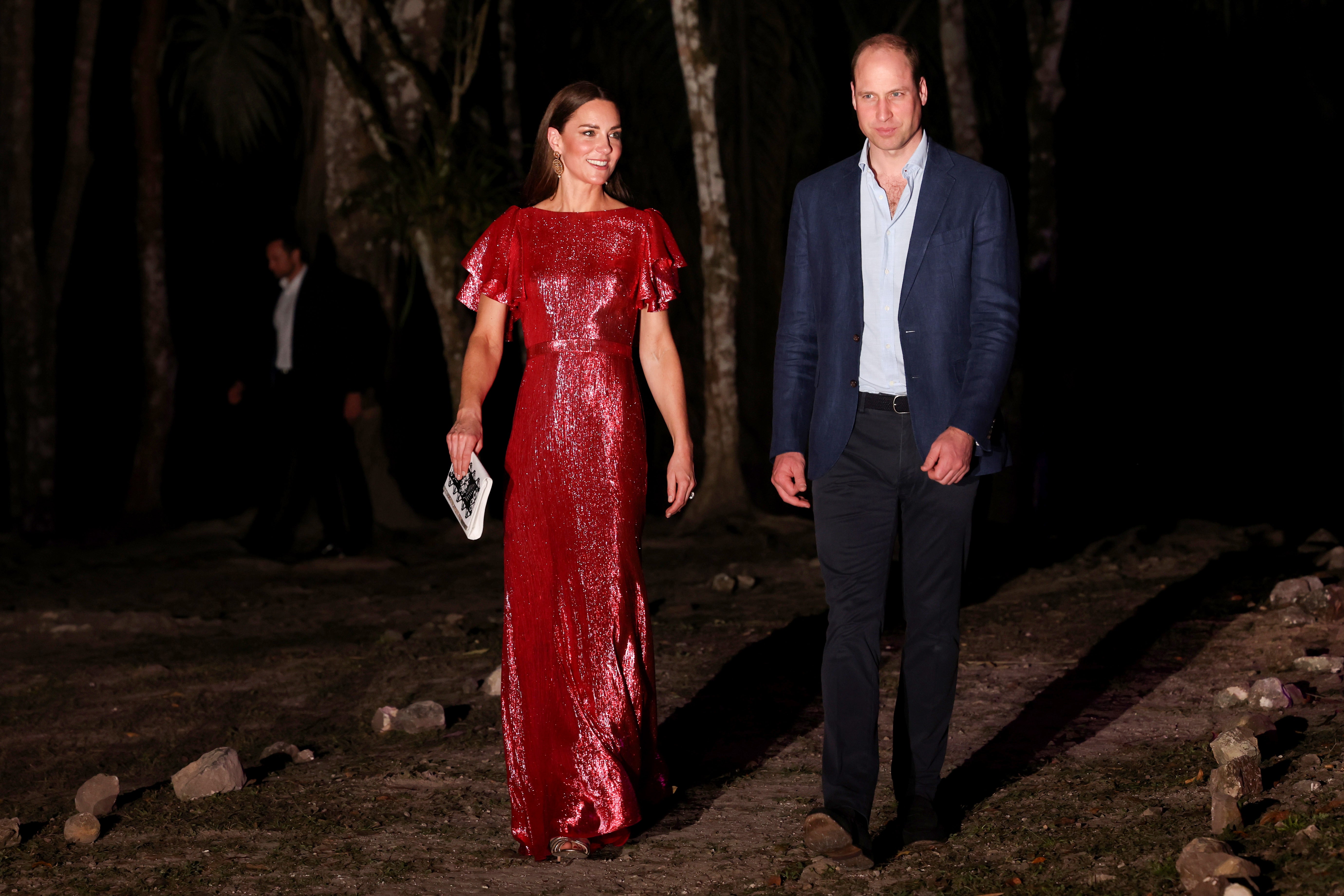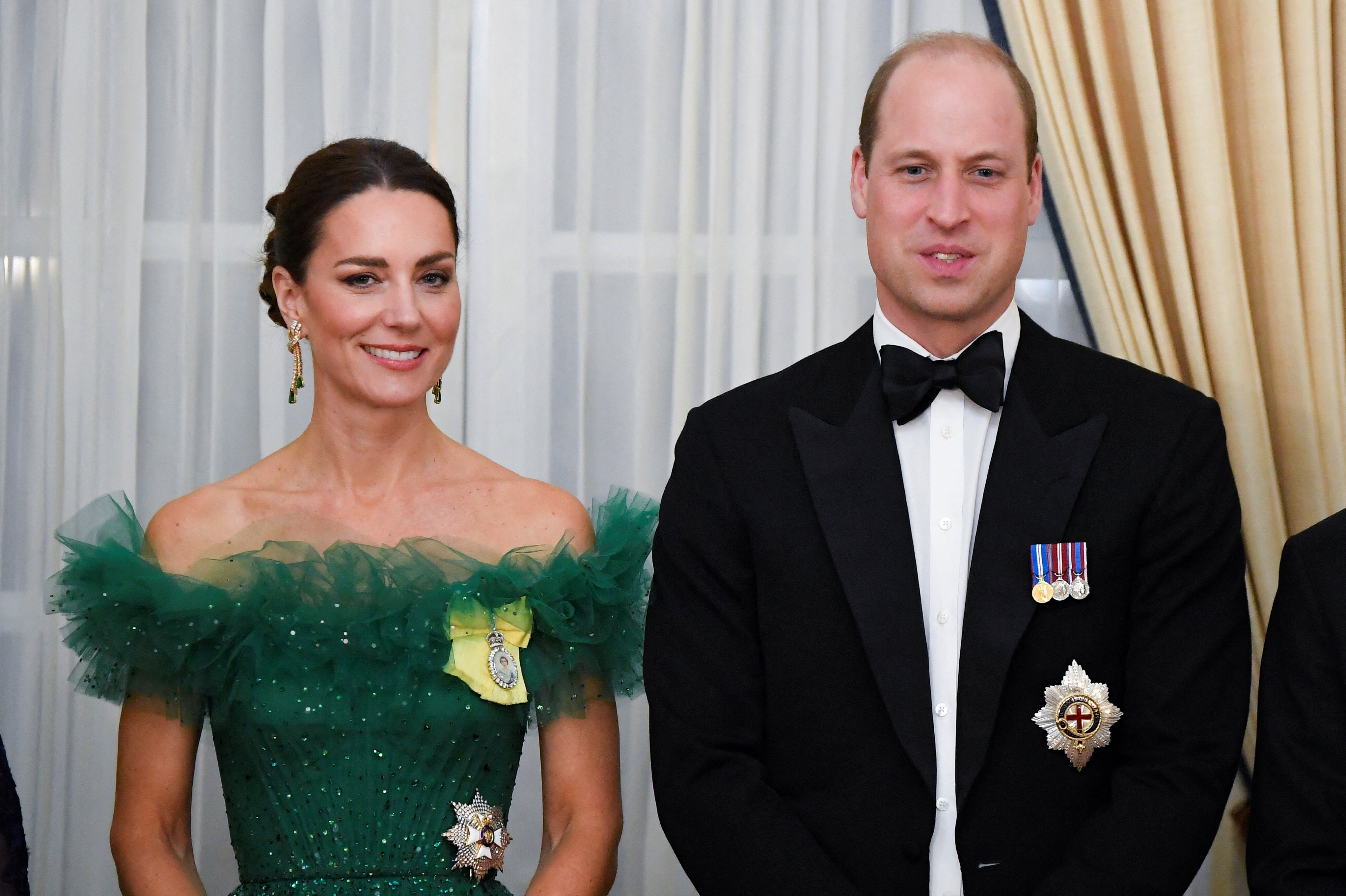Prince William has reportedly laid out plans for the future of the monarchy, which include bringing an end to the royal family’s “never complain, never explain” tradition.
It comes after the Duke and Duchess of Cambridge returned from their eight-day Caribbean tour in honour of the Queen’s Platinum Jubilee, which was marked by protests against the monarchy in each country they visited.
William wrapped up the tour by releasing an unprecedented statement that reflected on his visit and said it had “brought into even sharper focus questions about the past and the future”.
The future king said the futures of Belize, Jamaica and the Bahamas – all of which are Commonwealth countries that still recognise the Queen as head of state – will be “for the people to decide upon”.
“Who the Commonwealth chooses to lead its family in the future isn’t what is on my mind,” he continued. “What matters to us is the potential the Commonwealth family has to create a better future for the people who form it, and our commitment to serve and support as best we can.”
The rare statement was a departure from the royal family’s long-standing policy of never commenting on allegations or attacks against them.
While the phrase “never complain, never explain” is not a formally recognised code of conduct, it sums up the monarchy’s generally-stoic approach to the press.
It is believed that the unofficial motto originated from former prime minister Benjamin Disraeli, who served twice from 1868 until 1880. It was later adopted by the Queen Mother into the royal family’s approach to controversy.
But it hasn’t always stayed that way. William’s speech in Jamaica, in which he expressed “profound sorrow” over Britain’s role in slavery, is just one of the most recent examples of the royal family breaking tradition.
His landmark speech marked a “step forward” for the establishment, according to historian Robert Lacey.
Lacey told PEOPLE Magazine that the in the past, the Queen and the late Prince Philip would have “never mentioned slavery… but it is now a live issue”
“The royal family would traditionally skirt around this sort of issue, so it shows the new generation facing up to social issues and being prepared to talk about them and acknowledge fault.”

Another example of William speaking up took place in March 2021, after Prince Harry and Meghan Markle’s explosive interview with Oprah Winfrey.
In the interview – which is itself another example of members of the royal family ignoring the “never complain, never explain” policy – the Duke and Duchess of Sussex made allegations of racism and poor treatment of Meghan’s mental health while they were in the UKI.
A few days after the interview was released, William defended the royal family and said they are “very much not a racist family”, although he did not speak on it further.
Aside from their interview with Oprah, the Sussexes are also known for going against the convention and speaking out about issues that would normally have been kept private.
In February last year, Prince Harry told James Corden on The Late Late Show that he had decided to step back from the royal family because it was “destroying [his] mental health”.

He said the British media’s treatment of him and Meghan created “a really difficult environment”, adding: “I was like, ‘This is toxic’. So I did what any husband and what any father would do and was like, ‘I need to get my family out of here’.”
Another member of the royal family who has made unprecedented public statements is Prince Andrew. The Queen’s second eldest son gave an interview to BBC Newsnightin response to claims surrounding his relationship with sex offender Jeffrey Epstein.
The Duke of York has consistently denied ever meeting Virginia Giuffre, who alleged that they met in 2001 through Epstein and that she had sex with Andrew. He has since reached a multi-million pound settlement over the sexual abuse claim and said he regretted his association with the disgraced businessman.
He told Emily Maitlis during the Newsnight interview that he did not think there was “anything wrong” with his friendship with Epstein prior to the latter’s conviction in 2008.
“I kick myself for [staying with Epstein] because it was not something that was becoming of a member of the royal family and we try and uphold the highest standards and practices and I let the side down, simple as that.”

Join our commenting forum
Join thought-provoking conversations, follow other Independent readers and see their replies
Comments